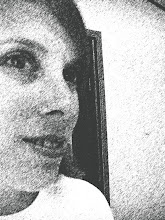skip to main |
skip to sidebar
We often erroneously assume that acting in love follows feeling in love. The truth is that living by our feelings very rarely results in action; rather, choosing to act in a certain way more frequently leads to a corresponding change in our feelings. William Shakespeare addresses this misconception regarding love in sonnet 116, which contrasts love as an action and love as an emotion. He says:
Let me not to the marriage of true minds
Admit impediments. Love is not love
Which alters when it alteration finds,
Or bends with the remover to remove.
O no, it is an ever fixed mark
That looks on tempests and is never shaken;
It is the star to every wand’ring barque,
Whose worth’s unknown although his height be taken.
Love’s not time’s fool, though rosy lips and cheeks
Within his bending sickle’s compass come;
Love alters not with his brief hours and weeks,
But bears it out even to the edge of doom.
If this be error and upon me proved,
I never writ, nor no man ever loved.
Shakespeare tells us that love is not love if it is easily shaken, if it “alters when it alteration finds” (3). Shakespeare’s sonnet is confirmed by biblical principles; 1 Corinthians 13 states that love never fails. Genuine love is not dependent upon circumstances, time or people; rather, it is a “fixed mark” that “bears all things, believes all things, hopes all things, endures all things” (1 Corinthians 13:7).
tells us that love is not love if it is easily shaken, if it “alters when it alteration finds” (3). Shakespeare’s sonnet is confirmed by biblical principles; 1 Corinthians 13 states that love never fails. Genuine love is not dependent upon circumstances, time or people; rather, it is a “fixed mark” that “bears all things, believes all things, hopes all things, endures all things” (1 Corinthians 13:7).
To have this sort of love, we must choose to love in spite of our feelings. The Bible never tells us to “feel” love, but it does provide us with directions for how to act in love. Shakespeare presents a similar argument in his sonnet. He does not focus on the romantic feelings of love; rather, he examines what love looks like in action. This action starts in the mind – “Let me not to the marriage of true minds/ Admit impediments” (1-2) – and is carried out in daily living: “Love alters not with his brief hours and weeks, / But bears it out even to the edge of doom” (11-2).
presents a similar argument in his sonnet. He does not focus on the romantic feelings of love; rather, he examines what love looks like in action. This action starts in the mind – “Let me not to the marriage of true minds/ Admit impediments” (1-2) – and is carried out in daily living: “Love alters not with his brief hours and weeks, / But bears it out even to the edge of doom” (11-2).
Shakespeare invites us to test his theory of love in the final lines of his sonnet; he asks us to demonstrate his “error” (13) and to prove that he knows nothing of love. I dare you to take the challenge that Shakespeare and 1 Corinthians 13 offer. I think you will be pleasantly surprised to find that we often feel love when we act, rather than feel, in love.
invites us to test his theory of love in the final lines of his sonnet; he asks us to demonstrate his “error” (13) and to prove that he knows nothing of love. I dare you to take the challenge that Shakespeare and 1 Corinthians 13 offer. I think you will be pleasantly surprised to find that we often feel love when we act, rather than feel, in love.





No comments:
Post a Comment